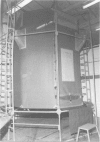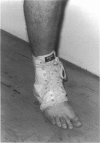Abstract
OBJECTIVE: To present the risks of aeroball, a new sport played by either two or four players on a trampoline court surrounded by specially constructed fabric walls, and to propose ways to increase awareness and reduce the incidence of injury, in particular, ankle injury. METHOD: A study was carried out to document the nature of aeroball related incidents, between 1991 and 1995, at Lancaster University Sports Centre. Lace-up ankle supports were introduced in April 1992, and their effect on the incidence of ankle injury was recorded. RESULTS: The lower limb received most injuries (90%), followed by the upper limb (6%), then the face (3%) and cervical spine (1%). The most common category of injuries was sprains (83%), followed by fractures (8%), contusions (5%), and dislocations (4%). The most common site of injury was the ankle (73%). It is during doubles play that injury is most likely to occur. Since the introduction of ankle supports, there has been a gradual decline in the incidence of ankle injury, 31 in 1991 to nine in 1995. CONCLUSION: Aeroball has become a popular sport, but it is not without risks. Leaflets have been produced to promote the objectives, rules, and safety of the game. Trained full-time staff should be present to explain the nature of the game. The use of prophylactic ankle stabilisers in aeroball is strongly recommended.
Full text
PDF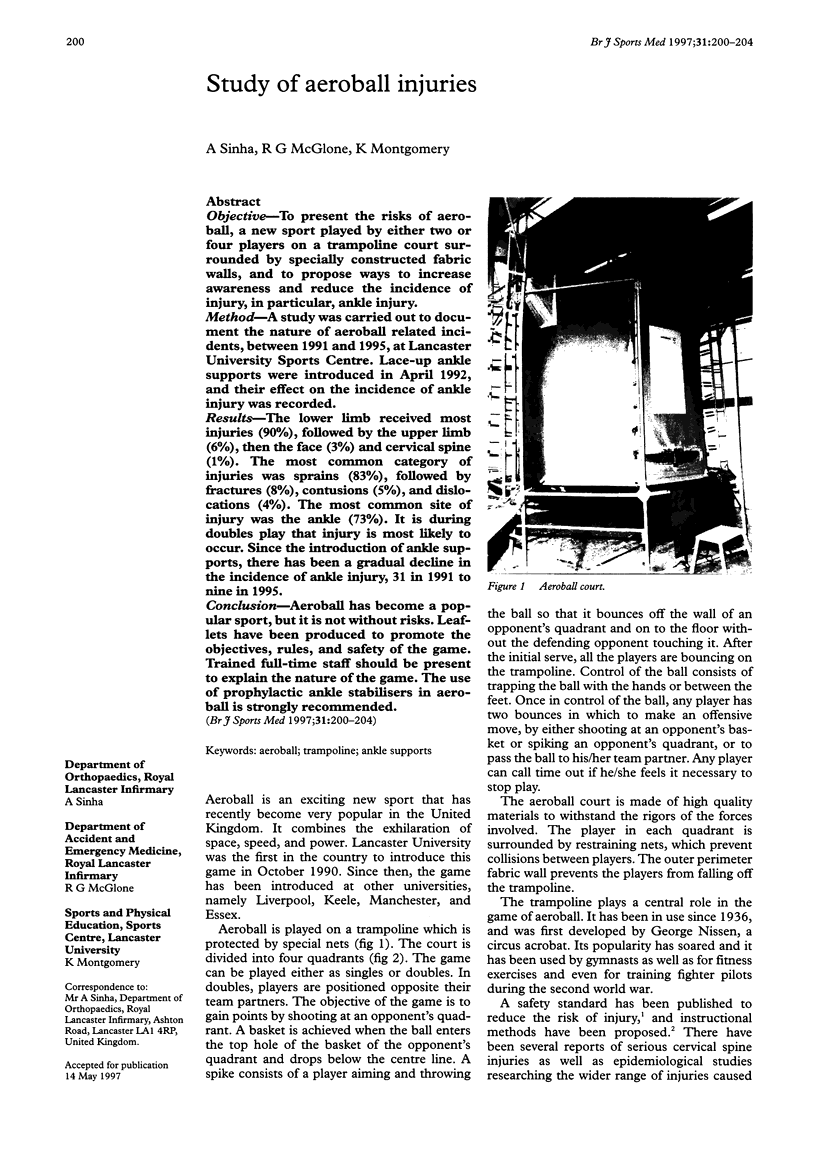
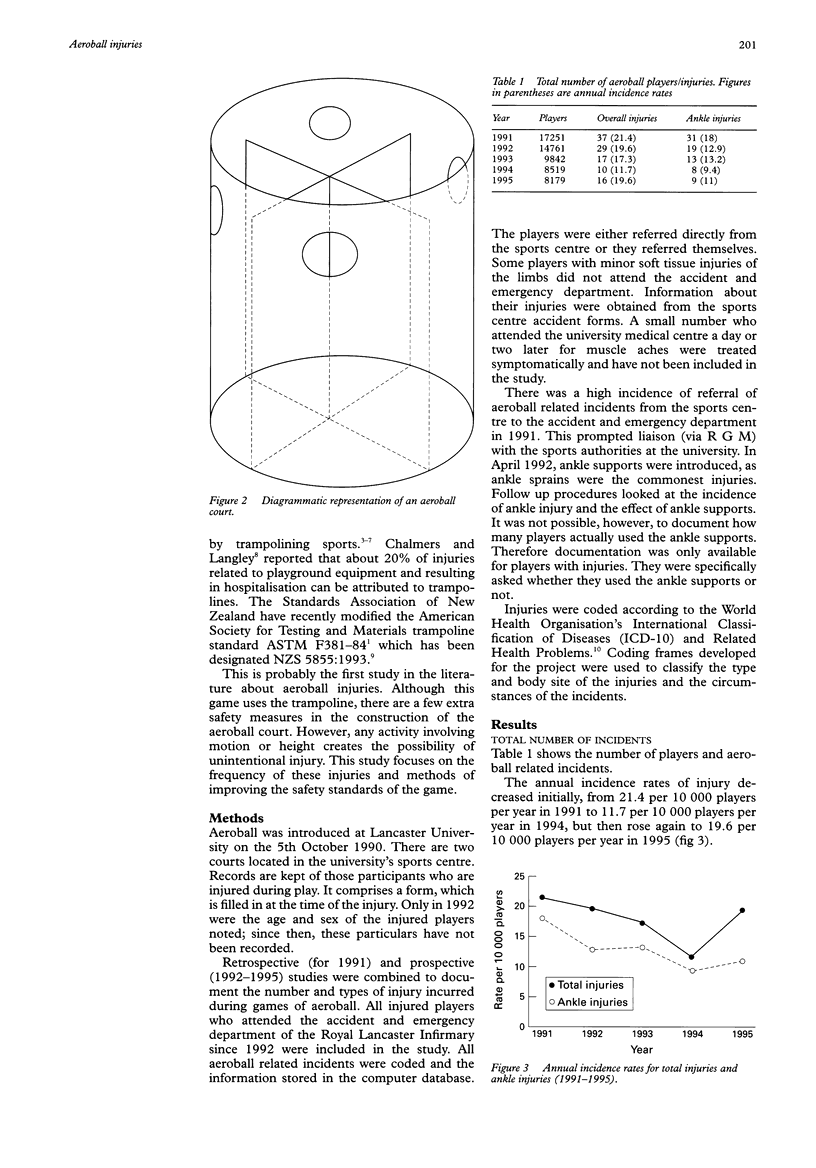
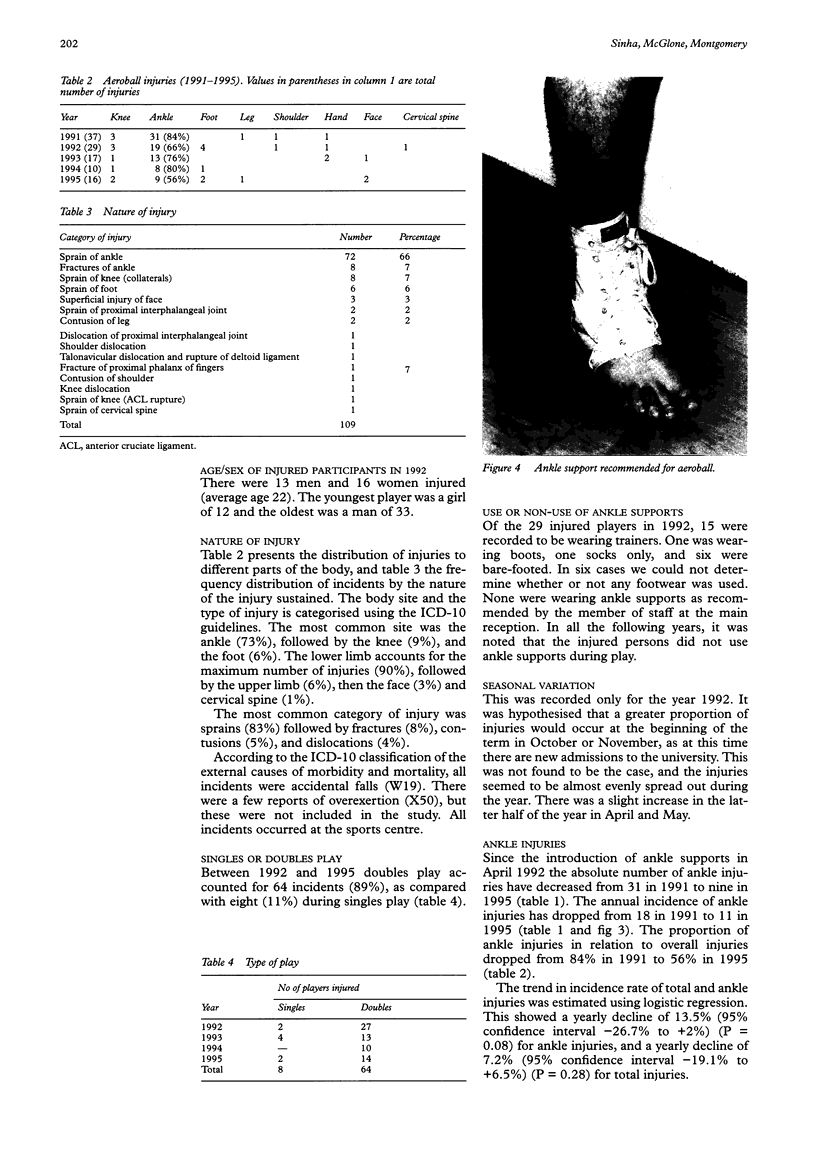
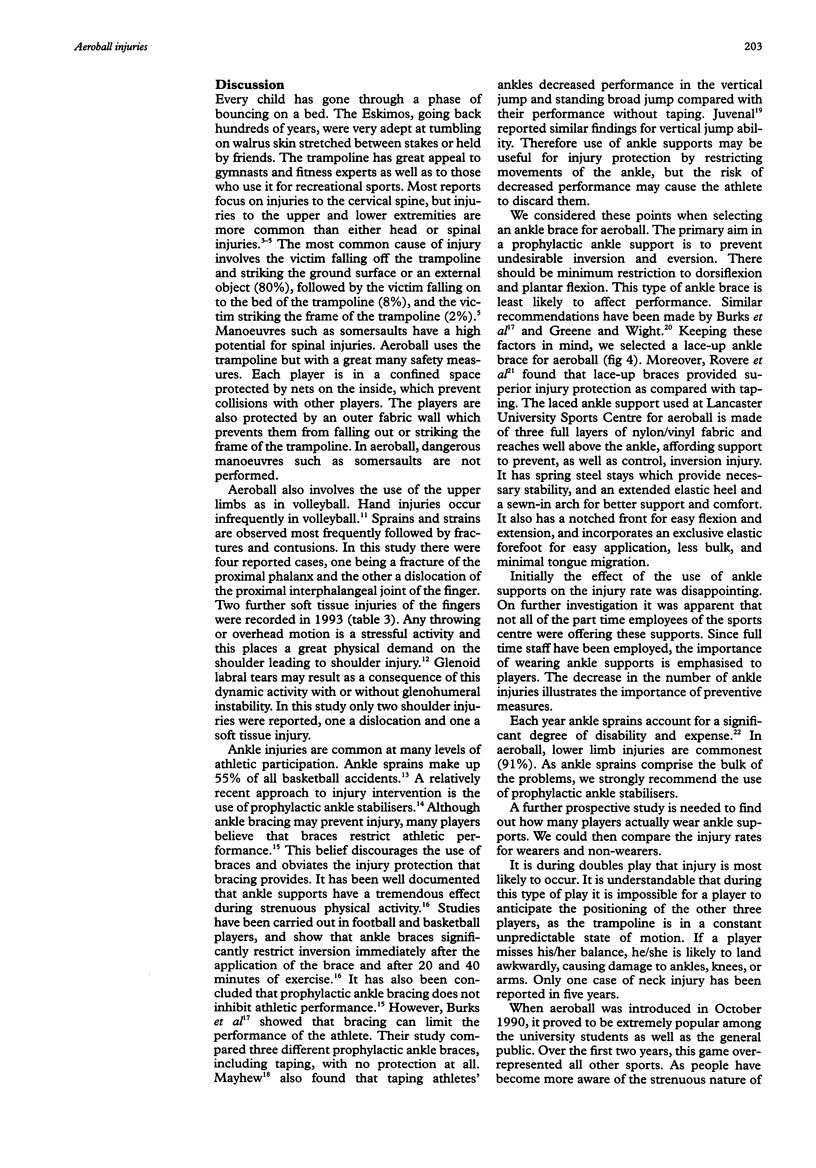
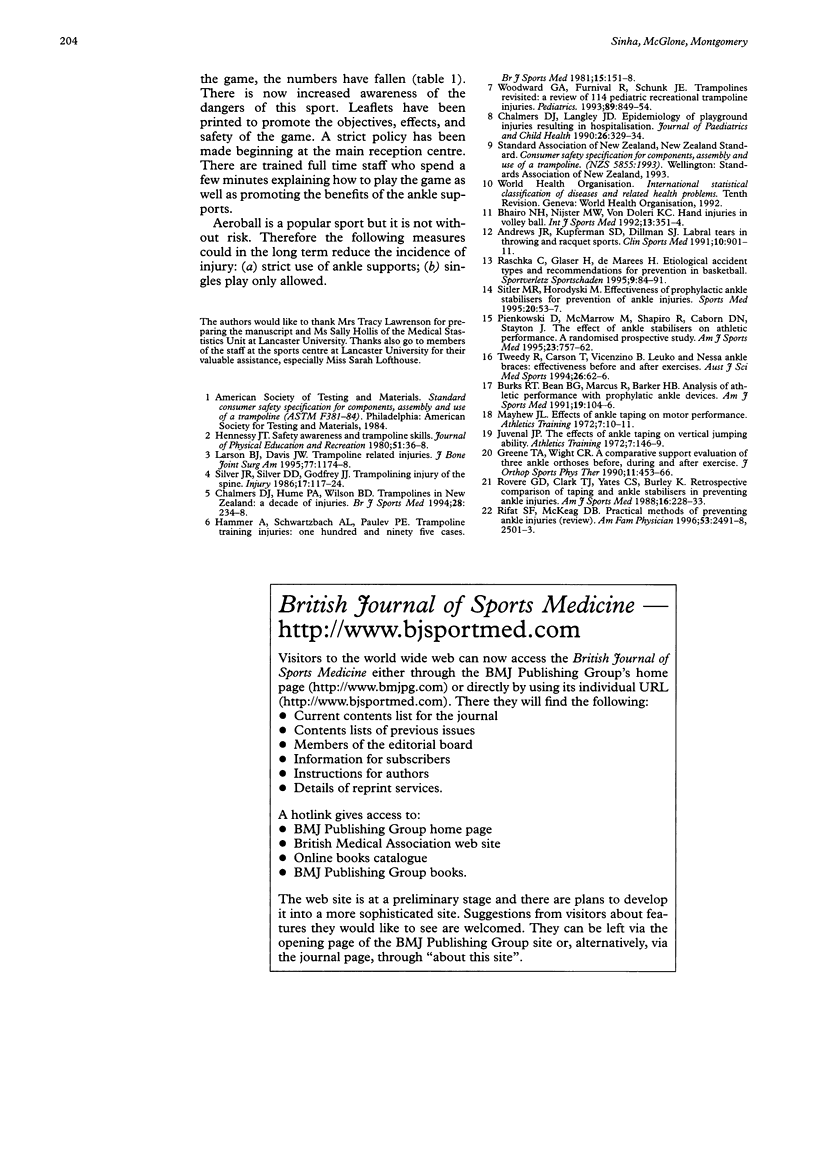
Images in this article
Selected References
These references are in PubMed. This may not be the complete list of references from this article.
- Bhairo N. H., Nijsten M. W., van Dalen K. C., ten Duis H. J. Hand injuries in volleyball. Int J Sports Med. 1992 May;13(4):351–354. doi: 10.1055/s-2007-1021280. [DOI] [PubMed] [Google Scholar]
- Chalmers D. J., Hume P. A., Wilson B. D. Trampolines in New Zealand: a decade of injuries. Br J Sports Med. 1994 Dec;28(4):234–238. doi: 10.1136/bjsm.28.4.234. [DOI] [PMC free article] [PubMed] [Google Scholar]
- Chalmers D. J., Langley J. D. Epidemiology of playground equipment injuries resulting in hospitalization. J Paediatr Child Health. 1990 Dec;26(6):329–334. doi: 10.1111/j.1440-1754.1990.tb02446.x. [DOI] [PubMed] [Google Scholar]
- Hammer A., Schwartzbach A. L., Paulev P. E. Trampoline training injuries--one hundred and ninety-five cases. Br J Sports Med. 1981 Sep;15(3):151–158. doi: 10.1136/bjsm.15.3.151. [DOI] [PMC free article] [PubMed] [Google Scholar]
- Larson B. J., Davis J. W. Trampoline-related injuries. J Bone Joint Surg Am. 1995 Aug;77(8):1174–1178. doi: 10.2106/00004623-199508000-00005. [DOI] [PubMed] [Google Scholar]
- Pienkowski D., McMorrow M., Shapiro R., Caborn D. N., Stayton J. The effect of ankle stabilizers on athletic performance. A randomized prospective study. Am J Sports Med. 1995 Nov-Dec;23(6):757–762. doi: 10.1177/036354659502300621. [DOI] [PubMed] [Google Scholar]
- Rifat S. F., McKeag D. B. Practical methods of preventing ankle injuries. Am Fam Physician. 1996 Jun;53(8):2491-8, 2501-3. [PubMed] [Google Scholar]
- Rovere G. D., Clarke T. J., Yates C. S., Burley K. Retrospective comparison of taping and ankle stabilizers in preventing ankle injuries. Am J Sports Med. 1988 May-Jun;16(3):228–233. doi: 10.1177/036354658801600305. [DOI] [PubMed] [Google Scholar]
- Silver J. R., Silver D. D., Godfrey J. J. Trampolining injuries of the spine. Injury. 1986 Mar;17(2):117–124. doi: 10.1016/s0020-1383(86)80010-9. [DOI] [PubMed] [Google Scholar]
- Sitler M. R., Horodyski M. Effectiveness of prophylactic ankle stabilisers for prevention of ankle injuries. Sports Med. 1995 Jul;20(1):53–57. doi: 10.2165/00007256-199520010-00005. [DOI] [PubMed] [Google Scholar]
- Tweedy R., Carson T., Vicenzino B. Leuko and Nessa Ankle braces: effectiveness before and after exercise. Aust J Sci Med Sport. 1994 Sep-Dec;26(3-4):62–66. [PubMed] [Google Scholar]
- Woodward G. A., Furnival R., Schunk J. E. Trampolines revisited: a review of 114 pediatric recreational trampoline injuries. Pediatrics. 1992 May;89(5 Pt 1):849–854. [PubMed] [Google Scholar]



